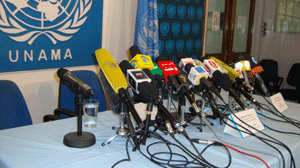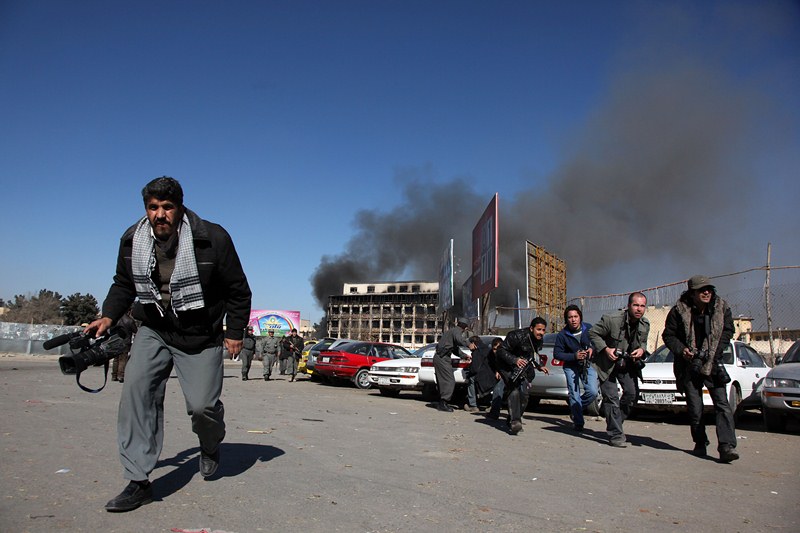NEW YORK - The United Nations General Assembly adopted unanimously a resolution this week to create an international observance day to highlight the need for the protection of journalists around the world.“(The General Assembly) decides to proclaim 2 November as the International Day to End Impunity for Crimes against Journalists,” stated the resolution on the safety of journalists and the issue of impunity, adopted on Tuesday by the Assembly's Third Committee.
Established in 1945, at the end stages of World War II, the Assembly serves as the world body's principal policy-making and deliberative organ, providing a forum for multilateral discussion of the full spectrum of international issues covered by the UN Charter. However, the issues and themes under discussion by the Assembly lend themselves to more effective discussion in smaller settings covering different topics. With this in mind, the Assembly has six Main Committees which discuss thematic issues, with all Member States able to take part in the discussions. The Assembly’s Third Committee covers humanitarian, social and cultural affairs.
The Committee’s decision has been hailed by media rights groups in Afghanistan, where the protection of journalists is a serious issue, given the country’s protracted armed conflict which has seen media workers targeted.
Welcoming the Assembly’s resolution, a member of the Afghanistan Journalists’ Federation, Akhpalwak Safi, called on the international community and the UN to put pressure on the Afghan Government and groups responsible for violence against journalists.
“Justice institutions are very weak in the country and so far there has been no significant progress on the cases of killing, kidnapping and threatening of journalists,” said Mr. Safi.
According to the Afghanistan National Journalists Union (ANJU), 35 journalists – 24 of them Afghan – have been killed in Afghanistan since 2001. In the past eight months, ANJU notes, three journalists have been killed, including a female reporter in central Parwan province.
In the resolution, the General Assembly also condemned unequivocally all attacks and violence against journalists and media workers, including torture, extrajudicial killings, enforced disappearances and arbitrary detention, as well as intimidation and harassment in both conflict and non-conflict situations.
The resolution, co-sponsored by over 70 countries, also called on UN Member States "to do their utmost to prevent violence against journalists" and to carry out "impartial, speedy and effective investigations" of attacks on journalists.
“The safety of journalists is an essential prerequisite for achieving freedom of expression, democracy, social development and peace,” the Paris-based media rights watchdog, Reporters Without Borders, also known as Reporters Sans Frontiers (RSF) in French, said in a news release.
“The resolution adopted by the UN General Assembly and the cause symbolized by the date chosen for International Day to End Impunity are more crucial than ever,” the watchdog body added.
RSF noted that 2012 was the deadliest year for journalists since it began producing an annual round-up in 1995, with 89 journalists killed in connection to their work.
“Another 52 journalists have been killed in connection with their work since the start of 2013. We were outraged by the murders of veteran French journalists Ghislaine Dupont and Claude Verlon in Mali on November 2, as we have been by the murders of fellow journalists in Syria, Somalia, Pakistan, Brazil and other parts of the world in 2013,” said the Secretary-General of RSF, Christophe Deloire, in the news release.







